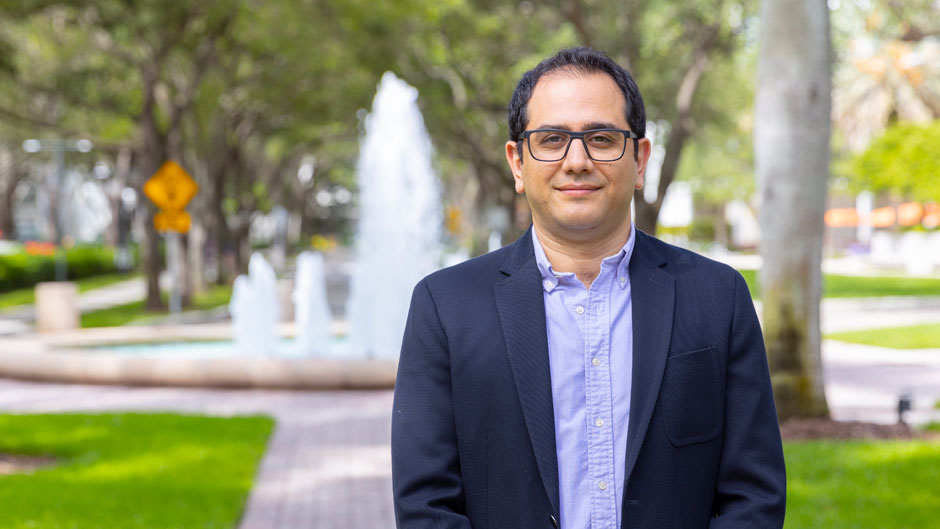If the nation’s manufacturing industry and other businesses were not already motivated to cut energy costs and reduce their carbon footprint, a landmark proposal approved by the Securities and Exchange Commission (SEC) on Monday just may incentivize them to do so.
Under the proposed regulation, adopted on a 3-1 SEC vote, hundreds of public companies would be required to not only disclose the greenhouse gas emissions they produce but also report on the risks that climate change poses to their operations.
“To what extent that will spur companies to take action remains to be seen, but there’s definitely a possibility that the rule, if it takes effect, could influence them to want to do something about the amount of heat-trapping gases they produce,” said Ramin Moghaddass, an associate professor of industrial engineering at the University of Miami College of Engineering, who directs an initiative designed to assist businesses in lowering their carbon emissions and energy costs.
That initiative, known as the Data Analytics Lab and Industrial Assessment Center, recently received a five-year grant from the Department of Energy (DOE) to help small-to-medium-sized manufacturing companies in Florida and Puerto Rico become “greener” and more resilient.
The $2.1 million project, of which $1.7 million comes from DOE funding, began early this year.
“Climate change continues to be one of, if not the most important, issues for our planet,” said Moghaddass, whose center is one of 32 university-based assessment centers around the country to receive part of the DOE’s recent $60 million investment to increase energy efficiency in manufacturing.
“The U.S. has now officially rejoined the Paris Climate Accords, and this funding demonstrates the Biden administration’s commitment to mitigating the effects of climate change and achieving a clean energy economy,” he said. “We’ve got big plans for the grant.”
Using advanced analytics, alternative energy sources, smart sensors, and other new technology, Moghaddass and his team will teach businesses how to improve energy efficiency, manage wastewater systems more effectively, and ramp up their ability to supply heat, power, and other services to consumers.
“We’ll teach them the importance of using sustainable and renewable energy as well as recyclable products and scrap materials,” Moghaddass explained.
The center, which also conducts research in data analytics, will focus specifically on companies located in underserved areas, helping them to also beef up their cybersecurity and implement long-range strategies to become more resilient, he said.
Florida Power & Light, the Miami-Dade County Office of Resilience, and the Miami-Dade Water and Sewer Department are collaborators in the endeavor.
A satellite facility at the University of Turabo in Puerto Rico and a support center at the Miami Herbert Business School will reinforce the project, according to Moghaddass, who is a National Science Foundation CAREER award recipient.
“The outcomes of this project will not only benefit the manufacturing sectors in Florida and Puerto Rico but can also impact the energy efficiency and competitiveness of products used throughout the U.S. economy,” Moghaddass said.
But it is students who will arguably be the biggest beneficiaries of the project, Moghaddass revealed. Over the grant’s five-year period, more than 75 undergraduate and graduate students from diverse backgrounds will participate in the venture, conducting research and capstone projects, helping businesses become more sustainable, and, in some cases, obtaining full-time employment with those companies after graduating from the University.
“We’ll be preparing the next generation of energy-efficiency workers to help us achieve carbon neutrality by 2050,” Moghaddas said.

